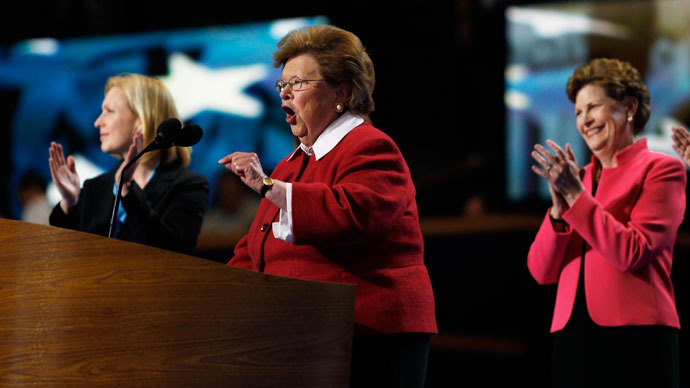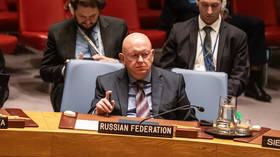Top senator apologizes for 'Monsanto Protection Act' after public outrage

The blowback caused by a new law that lets biotech companies like Monsanto escape litigation is so tremendous that a senior senator from Maryland has offered the public an apology.
US Senator Barbara A. Mikulski (D-Md.) has issued a statement expressing her regret for letting this year’s Agriculture Appropriations bill — an annual continuing resolution spending act — be signed into law.
"Senator Mikulski understands the anger over this provision. She didn't put the language in the bill and doesn't support it either,” begins a statement from her office dated Friday, March 29.
As RT reported earlier, President Barack Obama inked his name last Tuesday to the bill, H.R. 933, and in doing so signed off on a deal that essentially prevented a government-wide shut down. In doing as much, though, the president approved a provision that lets the companies that make genetically modified organisms (GMOs) and genetically engineered (GE) seeds step over legal hurdles in the future regarding lab-made products that may later be proven to be dangerous.
Included in the bill is a rider, Section 735, which says federal
courts cannot intervene and halt biotech companies from planting
and selling GMO goods to the public, even if testing proves them to
be potentially hazardous to the greater public. Because the
legislation largely shields agriculture giants Monsanto from
litigation, it has been dubbed by its critics the “Monsanto
Protection Act.” But even after more than 250,000 people signed a
petition asking the White House to intervene and ensure the bill
was not passed, Pres. Obama nonetheless approved it last
week.
Sen. Mikulski has served as chairwoman of the Senate Appropriations Committee since last December when she inherited the role after the passing of Sen. Dan Inouye (D-Hawaii). In a statement released by her office last week, a spokesperson suggests that Mikulski likely wouldn’t have let H.R. 933 end up the way it did had she ran the committee earlier.
"It was originally part of the Agriculture Appropriations bill that the House Appropriations Committee reported in June 2012, and it became part of the joint House-Senate agreement completed in the fall of 2012 before Senator Mikulski became Appropriations Chairwoman,” it reads.
"As Chairwoman of the Appropriations Committee, Senator Mikulski's first responsibility was to prevent a government shutdown. That meant she had to compromise on many of her own priorities to get a bill through the Senate that the House would pass."
Speaking to the Baltimore Sun this week, Colin O'Neil of the Center for Food Safety says his group hopes Mikulski won’t let any future provisions in the vein of the Monsanto Protection Act make it into law — and agrees that she likely didn’t support it.
"Her hands were tied by the negotiations that had previously happened," O'Neil said. "We recognize that the tough spot she was in."
Even so, however, O’Neil added that a person in Mikulski’s place would usually be expected to stop such provisions from being put into law. "The American public have relied on Senate Democrats to be a backstop against dangerous policy riders like this," he said. "We call on [Mikulski] to ensure that this rider is stricken from any future appropriations bills."
The statement from the senator’s spokesperson agrees as much. "Senator Mikulski has a strong food safety record. She has supported a bill requiring labeling of genetically engineered fish, an amendment to the Farm Bill that allows states to require labeling of edible foods and beverages for sale that contain genetically engineered ingredients and called for labeling of cloned animals or their progeny,” it reads. “She will continue to fight for a regular and timely Appropriations process and other valuable priorities, including food safety."
In the interim, though, Congress and the president have indeed signed off on a bill that, despite objections a legion of hundreds of thousands of America, still was signed into law.
As RT noted last week, Sen. Roy Blunt (R-Missouri) has been credited with crafting the language of H.R. 933 by working directly alongside Monsanto. Blunt has received $64,250 from Monsanto towards his campaign committee between 2008 and 2012.














